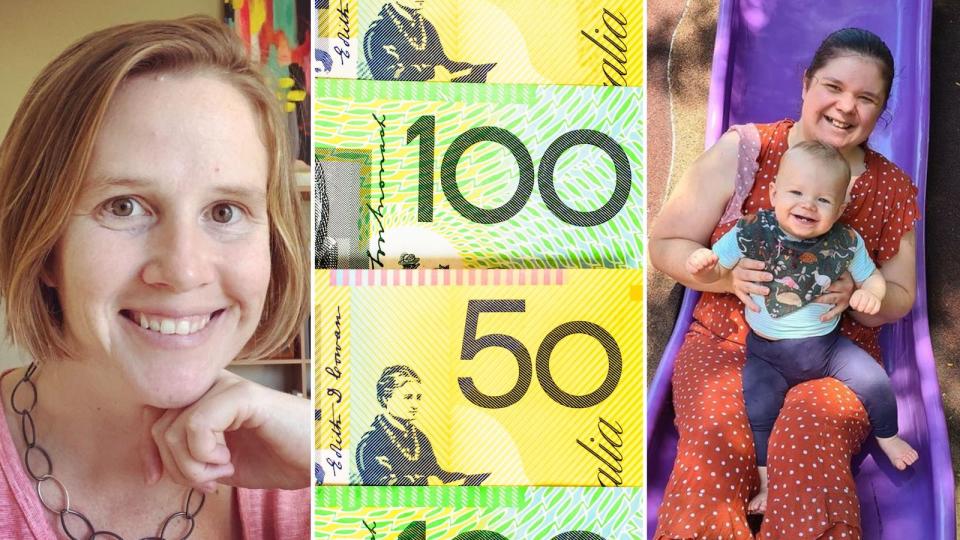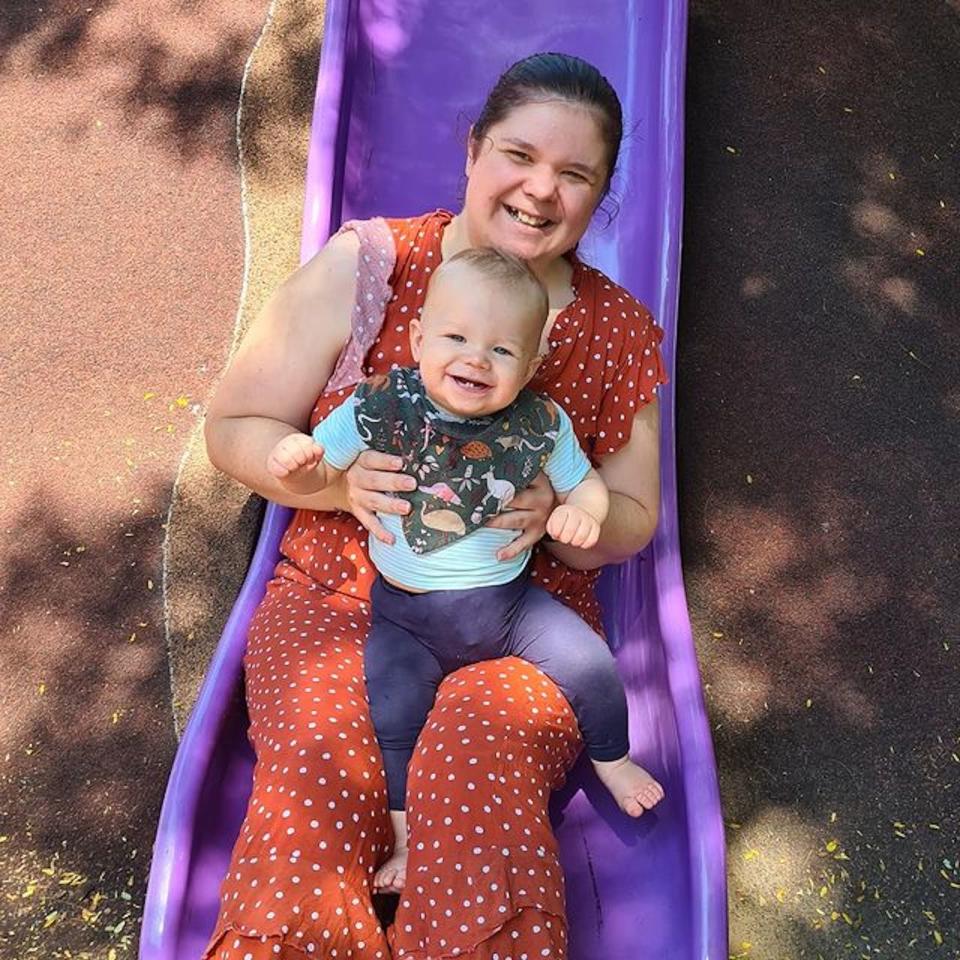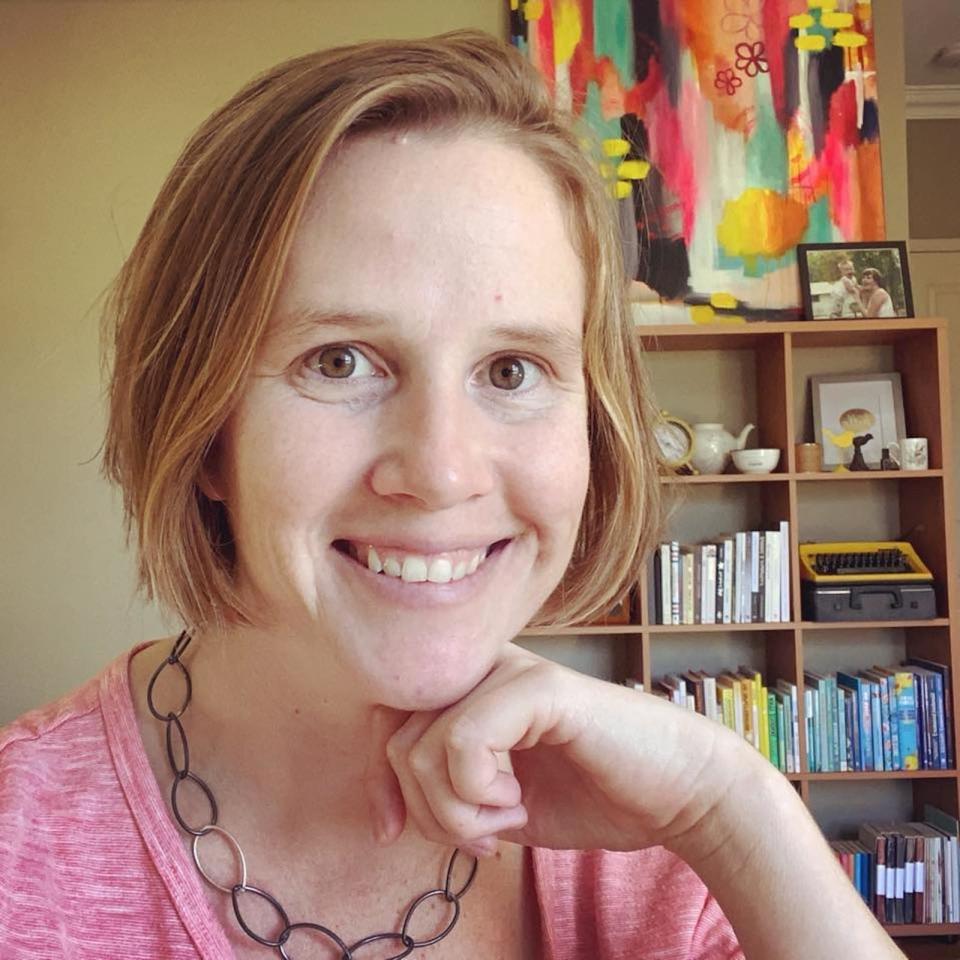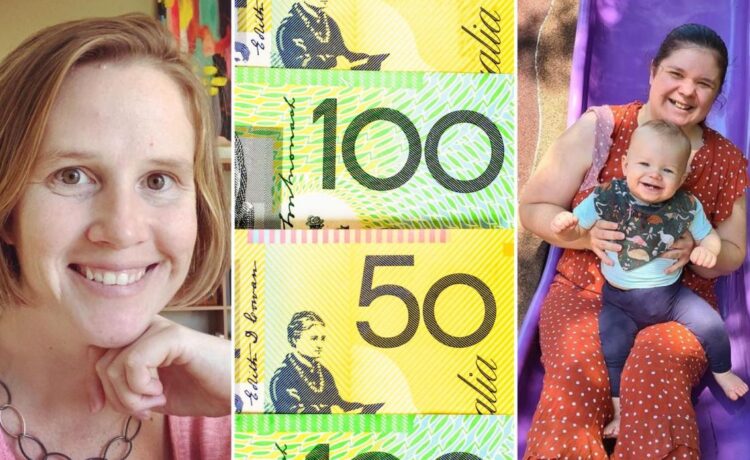January brings a renewed sense of energy, and many Aussies turn their attention to money goals and resolutions. According to recent Finder research, more than four in five Australians (83 per cent) say they have already set financial goals for 2024.
Getting on top of your finances is no easy feat, but it helps to know that others have been where you are. Being inspired by other people’s success may refresh your perspective and motivate you to make changes to your own bottom line this year.
I asked three Aussies who have flipped their financial situation for the better how they did it.


Emma, 32, tackled a mountain of credit card debt and regained control of her spending
When a cancelled Europe trip in 2020 left 32-year-old Emma stuck at home, she decided to finally face up to her credit card debt and lack of savings. Then, opening up to her partner helped her finally leave her financial problems in the past.
“I have always been terrible with money,” she said. “I had a terrible habit of spending all of my money and even pre-spending my pay before it had even hit my account. I had multiple credit cards, a car loan, no emergency fund and I always needed travel booked for something to look forward to.”
For Emma, her financial perspective was limited having not grown up with an abundance of money.
“I didn’t have good experience in saving money or understanding what my potential was if I didn’t spend it all at once.”
Also by Emma Edwards:
When the COVID-19 pandemic ruined her plans to celebrate her 30th birthday in Europe, Emma decided to face up to her finances while stuck in lockdown. She bought the popular Barefoot Investor book and credits it for opening her eyes to “how much of a mess” she was in.
“For the rest of that year, I doubled down on my credit cards and opened up to my now-husband on how bad my finances actually were,” she said, adding that opening up to her partner allowed her to continue her financial progress.
“He kept me motivated to improve so that we could have a better life together,” she said. “We decided to join our finances and we each received $100 per fortnight to spend on whatever we wished, the rest went to rent, debt and savings.”
Emma found the $100 per fortnight a hard adjustment, noting that she had gone from spending “whatever I’d like” to “in my mind, absolutely nothing”.
Since making the decision to get on top of her finances, Emma has paid down her credit cards, saved up $10,000 for a budget wedding, bought an apartment with her partner, and been on her first holiday paid for entirely with cash. Working with her now-husband in what they call a buddy system has helped them achieve their financial goals together.
“Together [we] figure out what our goals are, when we want to get there, and how we can make it happen.”
Emma’s advice to others wanting to get on top of their finances is to understand what all of [your] bills, debts, and living costs look like for a full year and then set aside an amount towards them from every single pay cycle. Then, distribute what’s left over between spending and savings goals.
“Knowing where your money is going and how it’s being spent is a very powerful thing.”
Single mum Nataasha, 33, from Qld, paid down $16,000 of debt after an unlikely wake-up call


When an attempt at fraudulent activity on her credit card failed because the card was already maxed out, Nataasha knew something had to change. Despite being a lucky escape in terms of the scam, it opened her eyes to just how tight things were for her finances.
“I struggled without the card while I was waiting for a new one,” she said. “It was my catalyst for turning things around.”
Nataasha explained that she had no idea about how to manage money or how to build savings. And research shows she isn’t alone. A study from Compare the Market revealed 15 per cent of Australians have no money in their emergency savings.
“I lived pay to pay for many years,” she said. “I’d often put groceries on my card just to get me through to payday. I just said to myself, ‘This is enough, I’m sick of this’.”
Nataasha started reading personal finance books and following along with the #DebtFreeCommunity on Instagram, where others shared their experiences with paying down debt and building up savings for the first time. She cut back discretionary spending, picked up a second job, and did online surveys to bring in the extra funds she needed to pay down the debt. Ultimately though, progress came down to focus and deliberate engagement with where her money was going.
“[Previously] I would write a budget but not actually track my spending or even try and stick to it,” she said.
Nataasha’s advice to anyone wanting to get on top of their finances this year is to start small and be patient with yourself in order to get long-term results.
“You don’t want to try and restrict yourself too much because that leads to failure. Still, allow yourself a little bit of guilt-free spending money relative to your income.”
Nataasha is now saving for a house deposit, and has plans to grow her investment portfolio and begin saving money for her son’s future. She shares her financial journey on Instagram at @tashagetsfrugal.
Elle, 38, broke the ‘feast and famine’ cycle she’d lived in for 10 years


Elle had no system when it came to her money. She was spending when the money was there, and struggling the second it wasn’t. But then, a series of life events forced her to re-evaluate everything.
“When business was good, I was OK but, when business wasn’t good, I fell behind with bills [and] racked up debt. My only system was to work harder when I fell behind,” Elle said.
She explained that her lack of system meant she had no way of prioritising her expenses.
“I’d spend on takeaway or taking the kids somewhere, and then be short for groceries.”
In 2021, Elle experienced a relationship breakdown, burnout from working 60-80 hours a week, and her health hit an all-time low. “
The wheels came off,” she said. “I had bills everywhere that I couldn’t pay, kids’ school, power. I eventually fell behind with rent as well, and outstanding debts in my business.”
Having to take time out of her business to recover meant that, for a year, she made enough to pay rent but that’s about all – everything else fell behind.
“I finally got tired enough of the stress of not having it under control,” she said.
To get on top of things, Elle said she got clear on the actual situation and totalled everything up. She tackled one thing at a time, making calls to creditors and setting up payment plans – a far cry from what she previously described as having her head firmly in the sand.
Now, she has a system for her money. Rather than playing with the whole amount and needing to steal back from savings again before the next pay, Elle now covers the important things first before spending on non-essentials and keeps money for bills and essentials separate from money available to spend.
Follow Yahoo Finance on Facebook, LinkedIn, Instagram and Twitter, and subscribe to our free daily newsletter.



















